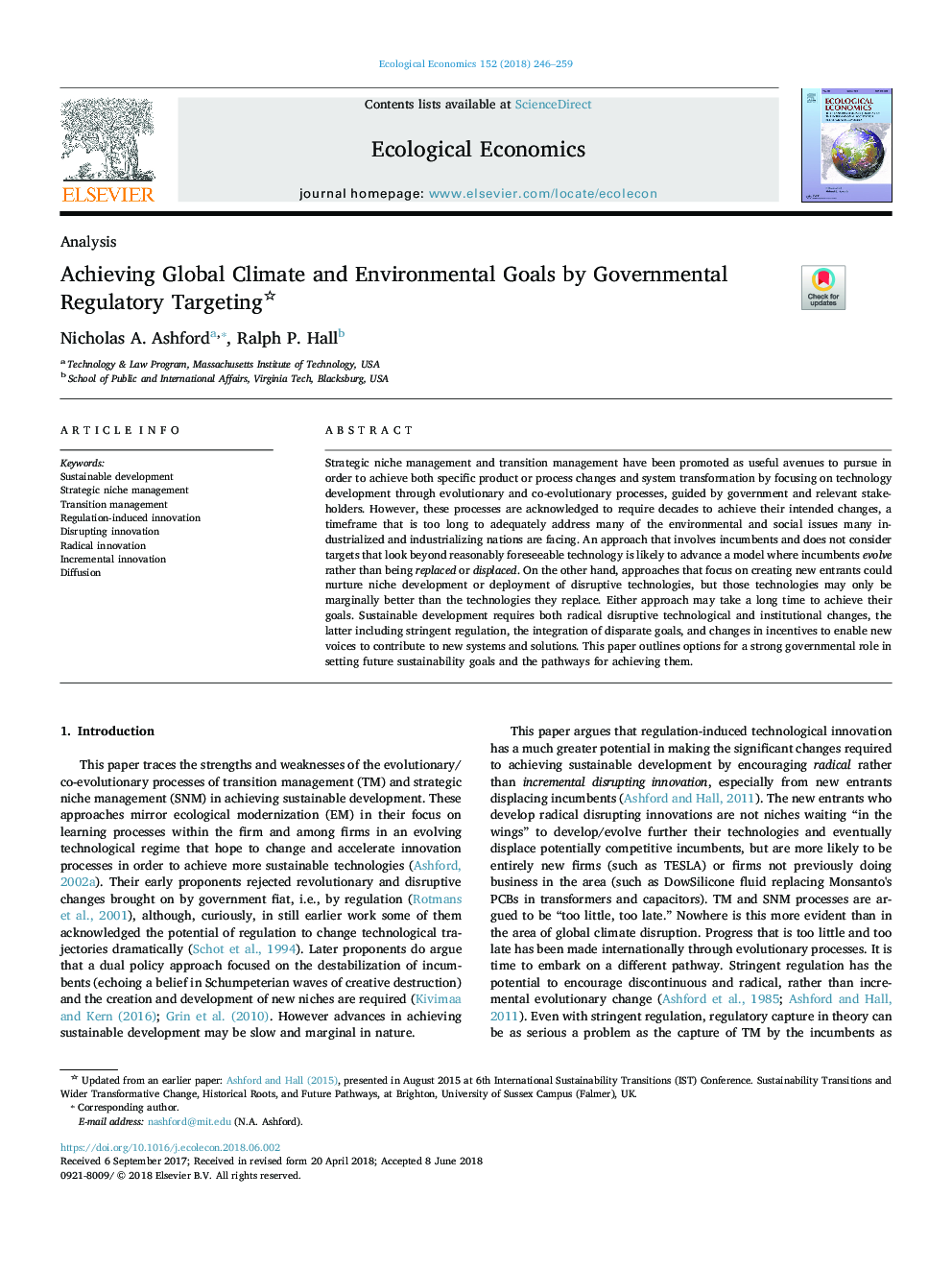| Article ID | Journal | Published Year | Pages | File Type |
|---|---|---|---|---|
| 7343830 | Ecological Economics | 2018 | 14 Pages |
Abstract
Strategic niche management and transition management have been promoted as useful avenues to pursue in order to achieve both specific product or process changes and system transformation by focusing on technology development through evolutionary and co-evolutionary processes, guided by government and relevant stakeholders. However, these processes are acknowledged to require decades to achieve their intended changes, a timeframe that is too long to adequately address many of the environmental and social issues many industrialized and industrializing nations are facing. An approach that involves incumbents and does not consider targets that look beyond reasonably foreseeable technology is likely to advance a model where incumbents evolve rather than being replaced or displaced. On the other hand, approaches that focus on creating new entrants could nurture niche development or deployment of disruptive technologies, but those technologies may only be marginally better than the technologies they replace. Either approach may take a long time to achieve their goals. Sustainable development requires both radical disruptive technological and institutional changes, the latter including stringent regulation, the integration of disparate goals, and changes in incentives to enable new voices to contribute to new systems and solutions. This paper outlines options for a strong governmental role in setting future sustainability goals and the pathways for achieving them.
Keywords
Related Topics
Life Sciences
Agricultural and Biological Sciences
Ecology, Evolution, Behavior and Systematics
Authors
Nicholas A. Ashford, Ralph P. Hall,
